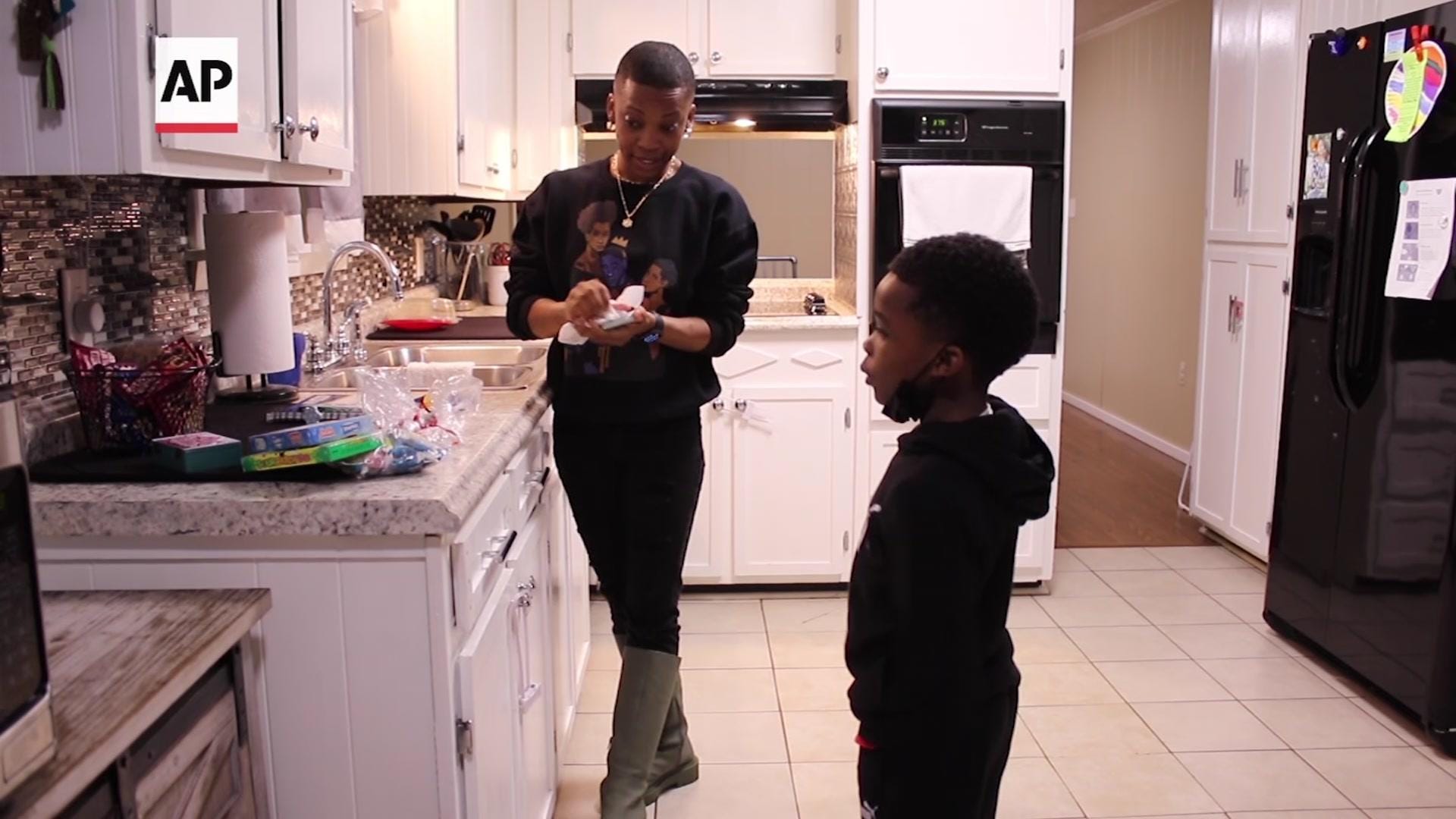
Reproductive rights advocates are voicing their outrage after a woman in Texas was arrested and charged with murder for what law enforcement called “the death of an individual by self-induced abortion.”
The Starr County Sheriff’s Office in southern Texas arrested Lizelle Herrera, 26, on Thursday. It is unclear whether Herrera is accused of having a self-induced abortion or if she helped someone else get an abortion.
“Herrera was arrested and served with an indictment on the charge of Murder after Herrera did then and there intentionally and knowingly cause the death of an individual by self-induced abortion,” sheriff’s Maj. Carlos Delgado said in a statement to the Associated Press.
Delgado did not say under which law Herrera has been charged. Herrera remains at Starr County jail on a $500,000 bond, according to the jail’s roster.
The sheriff’s department and the Starr County District Attorney’s office did not respond to multiple requests for comment from USA TODAY.
A handful of protesters gathered outside the jail Saturday morning to demand Herrera be released.
Rockie Gonzalez, founder of Frontera Fund, the nonprofit abortion access fund that organized the protest, called the arrest “inhumane,” adding in a Saturday statement that “criminalizing pregnant people’s choices or pregnancy outcomes, which the state of Texas has done, takes away people’s autonomy over their own bodies, and leaves them with no safe options when they choose not to become a parent.”
MARCH: Texas Supreme Court rules against abortion providers, closing ‘last back door’ to block six-week ban
WATCH: Michigan governor sues to secure abortion rights
“We stand in solidarity with you Lizelle, if you are reading this, and we will not stand down until you are free,” Gonzalez said.
Kamyon Conner, executive director of the Texas Equal Access Fund, said in a statement to USA TODAY that she stands in solidarity with Herrera and is outraged by her arrest.
“No one should be punished for pregnancy outcomes, especially in a state that has made abortion access impossible to obtain,” she said. “Make no mistake that these laws and harsh restrictions are meant to ensure that Black and brown bodies continue to be controlled by misogynistic, racist, and classist systems of oppression.”
The case comes several months after Texas Senate Bill 8 was enacted in September 2021, banning abortions after six weeks of pregnancy in a state that has the most restrictive abortion laws in the country. The law, however, does not target pregnant people themselves for prosecution and instead is enforceable by private parties who may sue abortion providers who “aid and abet” women seeking abortions.
Five states — Arizona, Oklahoma, South Carolina, Delaware and Nevada — have laws that criminalize self-managed abortions, according to February 2021 statement from If/When/How, a national network of lawyers advocating for reproductive rights. Texas does not have such a law.
However, “Even in states that have no such laws, politically-motivated police and prosecutors have tried to misuse other criminal laws to target people who self-manage abortion,” the statement said.
LATEST NEWS: Idaho Supreme Court temporarily blocks new ban on abortions after six weeks
Gonzalez from La Frontera told Texas Public Radio that “it definitely is” the first such case that she has seen in the Rio Grande Valley.
But a report from If/When/How said the organization found 18 arrests of people nationwide who ended their own pregnancies or of those who supported them.
“One thing is consistent through all of these cases: when a prosecutor wants to punish someone, they will find a way to do it,” the report said, adding that in many cases, the charges were based on antiquated laws or laws that were meant to protect pregnant people in the wake of high-profile, violent attacks against pregnant women.
While courts have typically sided with people facing charges related to self-induced abortions, there are about 40 types of laws prosecutors “may wield against people who end their own pregnancies and those who help them,” according to the If/When/How report.
In 2015, a murder charge was dropped against a 23-year-old Georgia woman who was accused of taking abortion pills to end a pregnancy. Dougherty County District Attorney Greg Edwards dismissed the charge on the grounds that “criminal prosecution of a pregnant woman for her own actions against her unborn child does not seem permitted,” the Washington Post reported.
The same year, an Indiana woman was sentenced to 20 years in prison after being convicted of feticide and child neglect for taking abortion-inducing drugs. A state appeals court later overturned both convictions, finding that Indiana’s feticide law wasn’t meant to be used to prosecute women for their own abortions.
Years before, Chinese American woman in Indiana was charged with murder and attempted feticide in 2011 after a failed suicide attempt resulted in a miscarriage. Those charges were dropped in 2013.
These types of arrests disproportionately target low-income women and women of color, according to another If/When/How report.
“These women are the ones most likely to have factors — such as a lack of money, childcare, transportation, or legal immigrant status, or a mistrust of the medical system — that push or pull them toward self-induced abortion,” the report said.
Contributing: The Associated Press
Contact News Now Reporter Christine Fernando at cfernando@usatoday.com or follow her on Twitter at @christinetfern.


